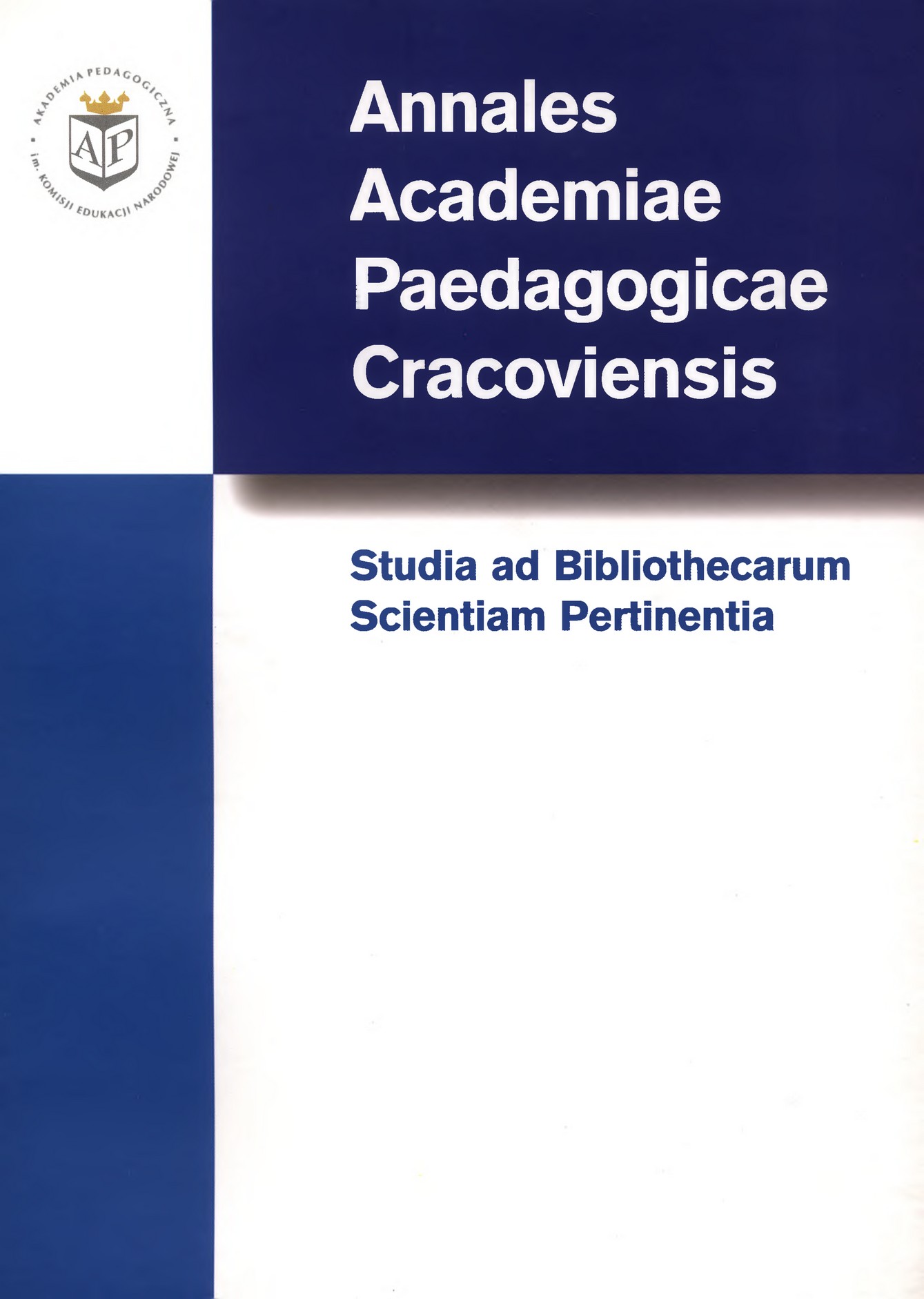Krakowskie publikacje zakwestionowane przez cenzurę carską w latach 1865–1904
Słowa kluczowe:
cenzura, historia, Kraków, 19-20 w.Abstrakt
[Cracovian publications banned by the Tsar’s censorship in the years 1865-1904]The article presents Cracovian publications banned by the Tsar’s censorship in the years 1865-1904 and describes the socio-cultural and political conditioning that had an influence on the book market in the Austrian and Russian partitions in that period (with particular focus on the censorship system). In the years 1865-1904 the strongest preventive censorship, which radicalised particularly after the January Uprising, functioned in the Russian partition. An important role in the censorship system was played by the external censorship which concerned imported publications subject to a more strict control than the domestic ones. Contacts with the Galician publishing houses were of greatest significance to the book market in the Russian partition as 72,2% of all imported Polish publications came from that region. This situation was determined by the extent of the offer of Galician publishing houses, their adherence to the censorship requirements in the Russian partition and the regularity of their contacts with the Russian market. The censorship in that period was most liberal in the Galician partition. It allowed for the development of the publishing market, especially that of typically “Polish” publications. Particularly advantageous perspectives of this development were in Krakow which, apart from Lviv and Warsaw, was one of the major publishing centres of that period. 1411 items appeared on the list of Cracovian publications that were completely banned by the Tsar’s censorship. It constituted 28,7% of the entire offer of the Krakow’s publishing market. The banned publications were organized into seven thematic categories. Most of the items were classified as scientific and popular scientific literature (42,9%). This decision may be related to the specific role of Krakow as the centre of the Polish science in the period of the Galician autonomy. The importance of the city (known as the “Polish Rome”) in the religious life had an impact on imposing the ban on a large number of publications from the field of religious literature (second place among all of the main categories - 27,3%). On the third place was belles letters (17,4%). Few publications were classified as: children and teenagers literature (2,3%), literature for the people (2,2%) and fine arts and music (1,9%). The lack of publishing authorization of some categories was strongly related to their subject-matter. The Tsar’s censorship aimed at Russification of the Polish community and thus banned publications that could disturb the process in any way. It may be confirmed by the constant censorship of any references, regardless of their literary genre, to patriotism and national matters and of works that evoked historical contexts in particular.
Pobrania
Opublikowane
2011-12-20
Jak cytować
Wnęk, A. (2011). Krakowskie publikacje zakwestionowane przez cenzurę carską w latach 1865–1904. AUPC Studia Ad Bibliothecarum Scientiam Pertinentia, 9, 219–237. Pobrano z https://sbsp.uken.krakow.pl/article/view/752
Numer
Dział
Materiały / Materials

